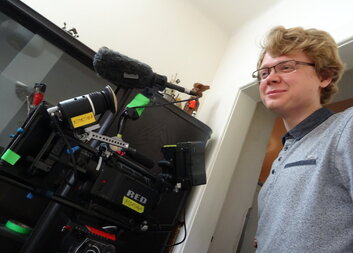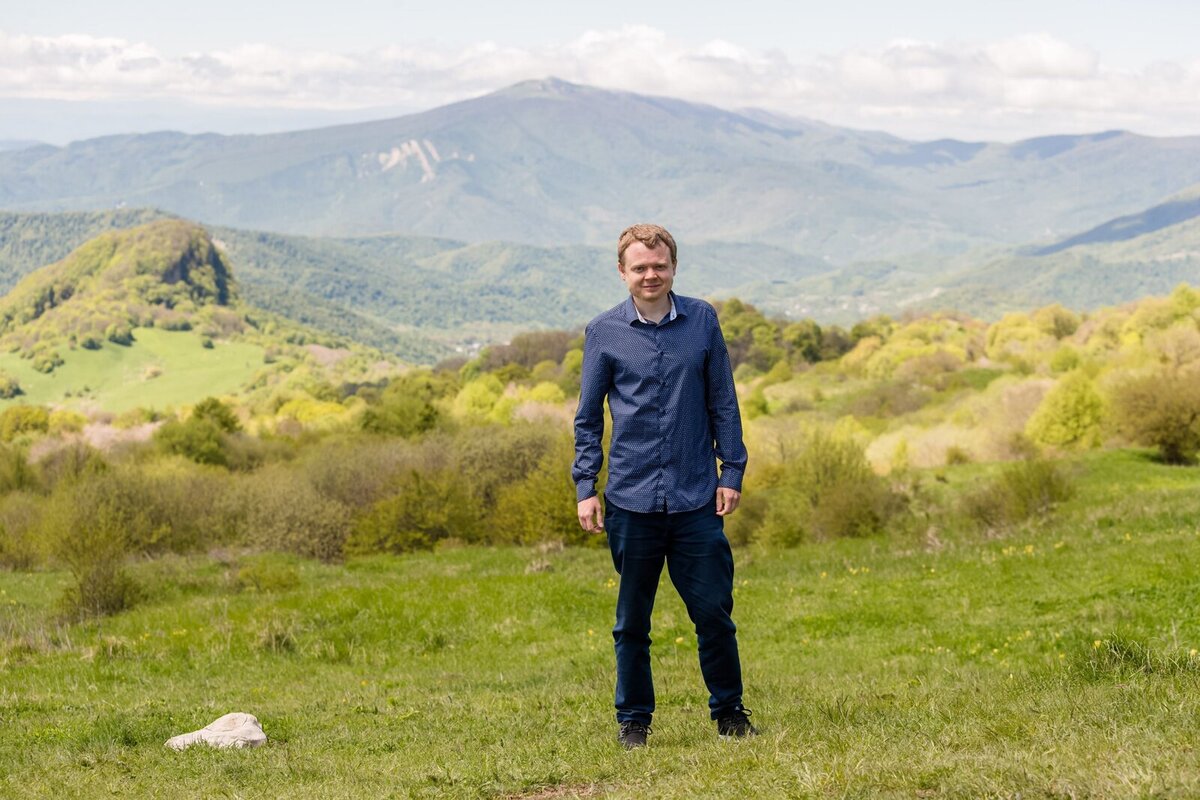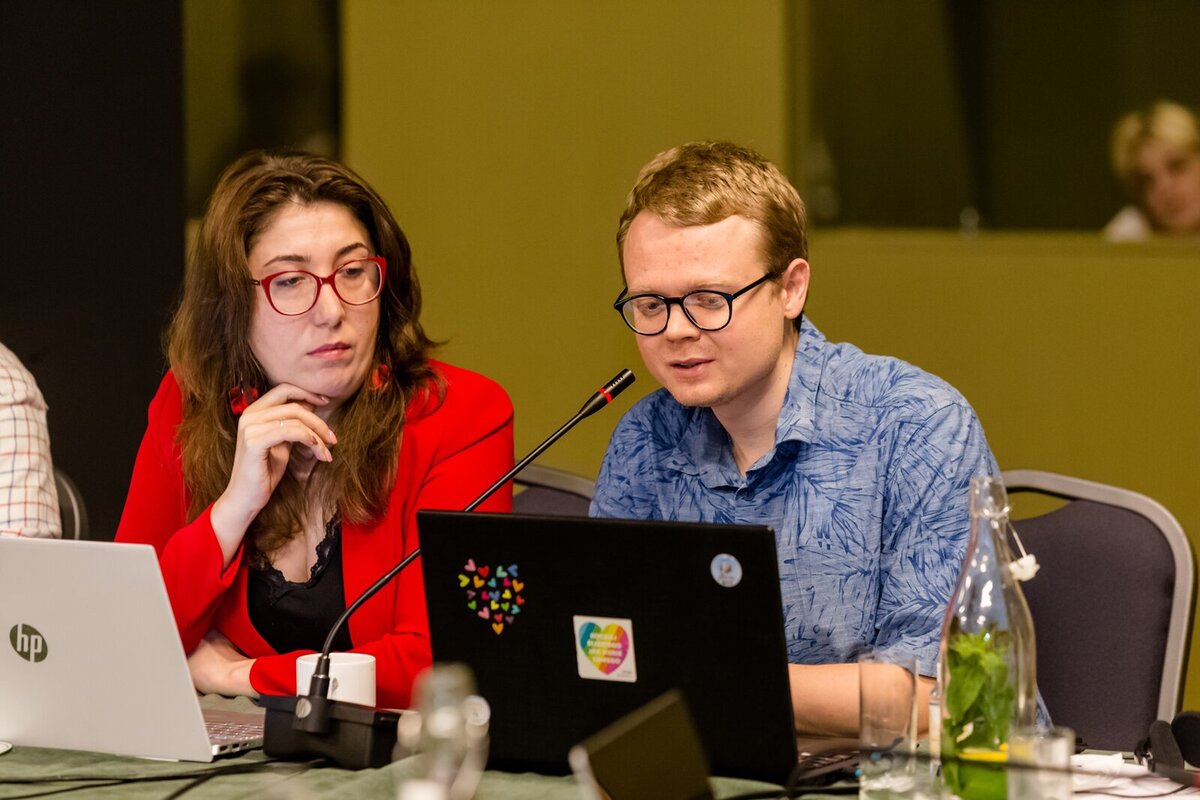Even though the contest Labyrint 2030 which focused on innovation in development cooperation ended, the five best teams are still working on their ideas. At the moment they are trying to find ways how to start their projects and help people in Georgia, Mongolia, and Zambia. One of them is Pavel Ruzyak, filmmaker and keen youth worker, who joined Labyrinth 2030 with a project about movie workshops for the visually impaired in Georgia. He has already visited the country, attended a thematic conference, and spoke with Caritas' country office there.
The situation of people with any form of health issue or handicap is not ideal even in the most developed countries. Reducing inequalities is a basic condition for people around the whole world to feel safe and to be able to develop their whole potential.
Pavel Ruzyak joined the contest Labyrinth 2030 which focused on innovations in development cooperation with exactly this assumption - of reducing inequalities. He has been working in the movie industry since 2016 when he successfully finished his studies at the Film and TV School of Academy of Performing Arts in Prague. He has been coordinating movie workshops for visually impaired children in the Czech Republic for more than a year and he would like to bring this idea also to Georgia which is still battling with many taboos around people with disabilities.
Pavel got this idea when he was making a documentary about visually impaired children and their paintings in schools. He says that the paintings of visually impaired children are not different from the painting that are made by children who see without any problem and he would like to give a chance to express themselves also through a different channel – a movie. He also states that there are ways how to bring a movie experience to visually impaired people – for example, sound subtitles where it is said what is happening on the screen. Pavel, however, wants to go one step further and engage visually impaired spectators in the art of creating.
Pavel talks about his trip to Georgia or how visually impaired people shoot a movie in the following interview.
You have already visited Georgia and consulted a possible introduction of your project. How was your visit and how was the meeting with Caritas' country office there?
My visit was connected with a thematic conference and all the meetings were very inspirational. We went deep into the project and looked at it from different angles. The reunion with the country office of Caritas Czech Republic was very nice and practical. We were trying to find a way that would lead to the start of the project and most of all to the benefits for the local community.
Why did you choose to prepare a movie workshop for visually impaired people in Georgia?
Georgia connects a big cinematographic tradition with important social questions that should be solved. Plus there are friendly local people who are open to trying new things and new approaches. This diverse combination gives a rich background to the project and it can be beneficial and interesting for both sides.
How can visually impaired people make a movie?
Visually impaired people are completely self-sufficient in all the creative aspects, so there is no reason why they couldn't make a movie. We use the method of assisted shooting – the visually impaired have a partner next to them with whom they talk about what and how to shoot and then how to cut each sequence. But since the beginning, the creators of the movie are the visually impaired people and they also do all the creative decisions. The assistants are here only as helping hands, like the eyes of the visually impaired, only to help them in the shooting or cutting through creative dialogue.
Your project has, apart from the artistic part, a huge social impact. What does solidarity and helping others mean to you?
I see solidarity and helping others more and more as an inseparable part of everyone's life. We simply cannot function without the help of others, so we need to offer help to others, too. Helping people who truly need it is for me far from being only an obligation – it is primarily a joy and natural behavior of every human being.
What was the journey through Labyrinth 2030 for you like?
Labyrinth 2030 especially brought me the chance to open the project outside of the Czech Republic. I had to think about what would be the way to tackle this problem in a different country and this has brought many new ideas and a more universal approach - when I had to see the project from an international context. To see the project from the outside also helped to improve the activity itself in the Czech context.
What do you plan to do next with your project?
I am preparing the foreign part of this project now and I hope we will be able, together, to bring it where it is needed. I also hope that this will help to strengthen the idea of this whole thing in the Czech Republic and the project will get better in all of its aspects, gain new partners and connect new people. Mostly, I hope this idea will soon give the chance to visually impaired people to create a movie which we will be able to watch together.









